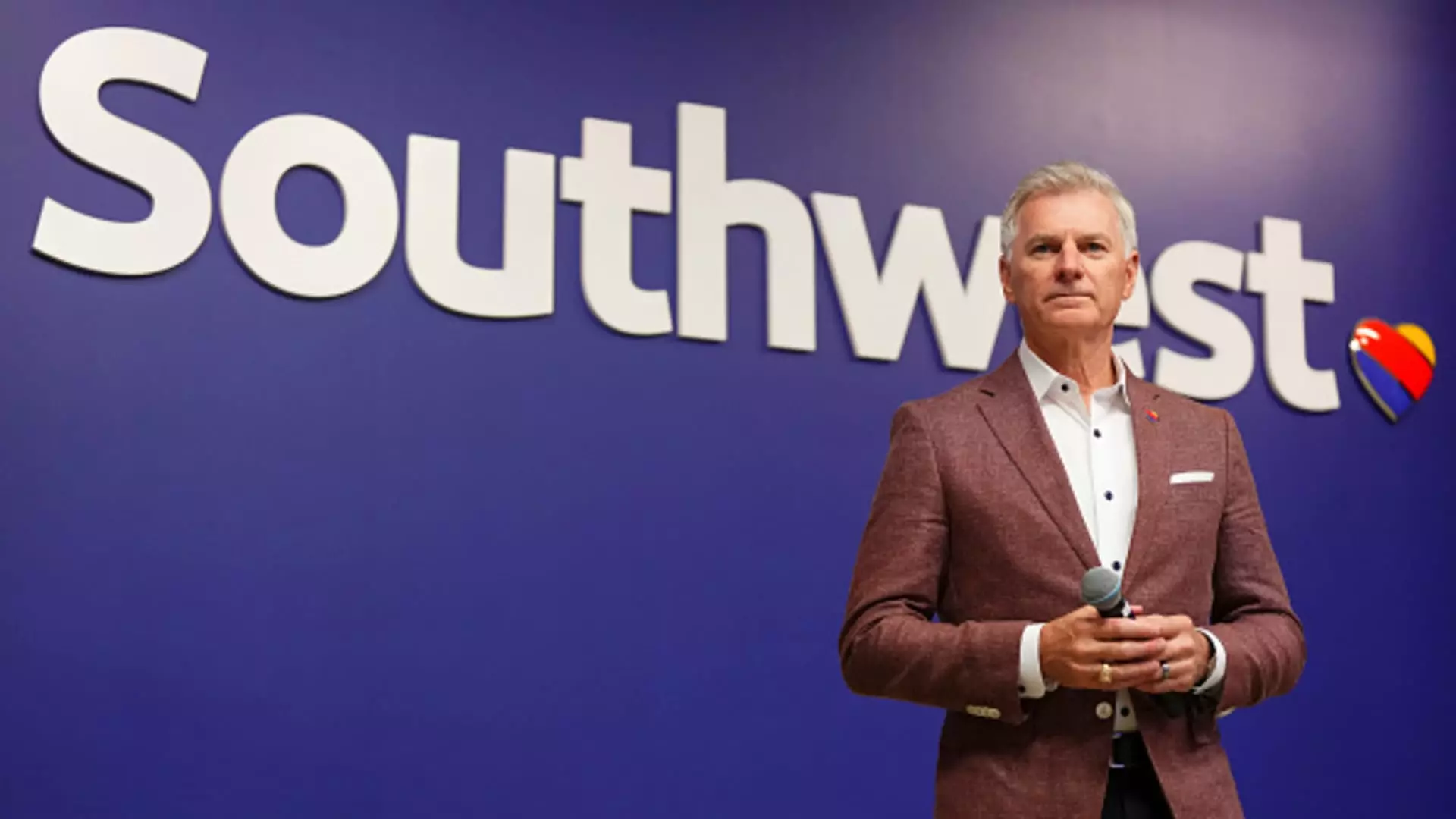Recently, Southwest Airlines entered into a pivotal agreement with Elliott Investment Management, an activist hedge fund, aimed at averting a potentially divisive proxy battle. This deal, while not granting Elliott full control over the board, proposes significant changes in governance, notably the introduction of six new directors and an unexpected acceleration of Executive Chairman Gary Kelly’s retirement. While the timing of this shift appears reactive to shareholder pressures, it also reflects broader industry trends where traditional practices in corporate governance are increasingly scrutinized.
Elliott’s involvement has been marked by growing dissatisfaction with Southwest’s strategic direction, particularly regarding its relatively stagnant business model in comparison to more adaptive competitors. They have pointed to a need for innovation, especially in an industry that is rapidly evolving post-pandemic. As Bob Jordan continues as CEO, it seems the board’s restructuring is seen as a necessary step to revitalize Southwest’s operational strategy, signaling a willingness to embrace change.
Elliott’s demand for board representation reflects a broader trend in corporate governance wherein activist investors wield significant power to reshape management and operational strategies. The addition of five directors from Elliott, coupled with board veteran Pierre Breber, reinstates a critical balance of power in an airline that has historically maintained a close-knit board structure.
Notably, the reconfiguration of the board has been framed as a means to enhance oversight and bring fresh perspectives, with Elliott’s leadership expressing hope that these changes will lead to a more dynamic and accountable governance framework. While the introduction of new board members is crucial, the challenge remains in integrating these directors into a culture that has long been defined by its established leadership.
Southwest’s current fiscal standing presents a dichotomy. While the airline announced a third-quarter profit exceeding analysts’ expectations, its stock performance trails far behind the broader market indices, highlighting potential investor skepticism regarding growth prospects. This skepticism emphasizes the necessity for strategic evolution; although Southwest has long championed a single class seating structure, competitive pressures from rivals such as Delta Air Lines necessitate a re-evaluation of this model.
In upcoming efforts, Southwest’s leadership aims to implement new revenue initiatives, one of which is an aggressive buyback strategy authorized at $2.5 billion. This maneuver is designed to boost shareholder confidence, though it begs the question: Will these financial strategies adequately address the underlying operational inertia that has defined the airline’s history?
The pivot away from entrenched business norms requires not only a shift in governance but a deeper cultural transformation at Southwest Airlines. The incoming board members will need to advocate for innovative strategies while balancing the legacy that has defined Southwest’s customer-centric approach. This also raises a critical question about employee morale and the historical ethos of the airline, which has been centered around its famously low-fare practices and a strong emphasis on customer service.
Moreover, with the airline industry still reeling from the disruptions caused by the COVID-19 pandemic, the urgency to establish a robust recovery plan becomes even more paramount. Stakeholders must remain vigilant; successful integration of new strategies and board influences hinges on a collective commitment to not just financial objectives but to the foundational principles upon which the company was built.
The recent changes at Southwest Airlines, driven by activist investment and internal leadership shifts, present a moment of potential transformation. The airline stands at a crossroads, facing both daunting challenges and significant opportunities as it seeks to redefine itself in a rapidly changing landscape. Stakeholders, including employees and investors, will be watching closely to see if these structural changes lead to sustainable growth or if they become mere footnotes in the ongoing narrative of Southwest Airlines.

